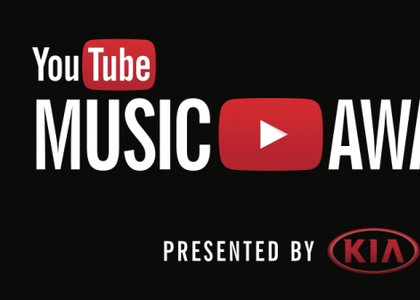Ms Teju Ajani, YouTube Partnership Manager, Sub-Saharan African on Thursday disclosed that YouTube mobile watch-time in Nigeria had increased by 150 per cent in the year 2016.
Ajani said this during the YouTube Brand Partner Summit held in Lagos.
According to her, the percentage is a proof that Nigerians are spending more time on the platform and are finding contents relevant to them.
“Mobile is playing an increasingly big role in driving online video consumption.
“The more people get access to low-cost smart phones and data price continues to drop, online video consumption in Nigeria will continue to rise.
“Brands should connect, inspire and entertain more on YouTube,” Ajani said.
She said that YouTube had been attracting a global generation of young people who had grown up watching what they wanted whenever they wanted on whatever device they had closest to them.
She added that globally, almost 60 per cent of YouTube’s monthly watch-time were from mobile devices and the rest were from either their computers and other immobile devices.
On brands that upload their contents, she urged them to stop creating vanity numbers, which do not have much engagement and relevance to their consumers.
“The beauties of YouTube is that it is a platform that has the ability to distribute contents but also gives you feedback on what you have sent out.
“To a brand, one engaged user that makes comment weather bad or good is a great feedback and a form of information that one can use to calculate what one is doing,” she said.
She said that the introduced life streaming on YouTube was also some of the tools that were available to anyone that using it.
She urged business owners of small, medium and big enterprises that want to use the tool to advertise their products to always abide by the terms and conditions associated with it.
“Anyone can life stream even with mobile phones and it does not matter what size you are, whether big or small, as long as you have a story to tell, one can use the life stream,” she said.
She said that another introduction to the YouTube is the YouTube Kids with advertisers indicating the age bracket on the platform.
She said that the only difference there was that conversation with audience would be monitored and it would not be frequent.
“Since it is for kids, we need to be extra careful and cautious and we need to make sure that the kids are exposed to the right contents for their age and category,” she said.
On the side of language, Ajani said that YouTube had introduced translation, adding that most brands now make use of subtitles to the local contents online.
She said that as regards the current situation in the country, she said that the downturns usually were good period from brands to take a good look at strategies to get more leverage.
Ms Susan Agliata, the Head, Branded Content, Sub-Saharan Africa said that brands now understood the importance of engaging their potential consumers on a regular basis.
She said that this had led to more relevant contents being created.
“Brands are really thinking about what interests their potential consumers are creating and the contents around it,” she said.
Agliata said that in the digital world generally and not just the video, there were data that could be used to created contents that would attract the consumers.
“One of the reasons why there is enormous shift in the ecosystem is that brands are providing contents relevant to the audience.
“In the world of choice, people want to explore different types of contents and that is where creators have filled the void,” she said. (NAN)

